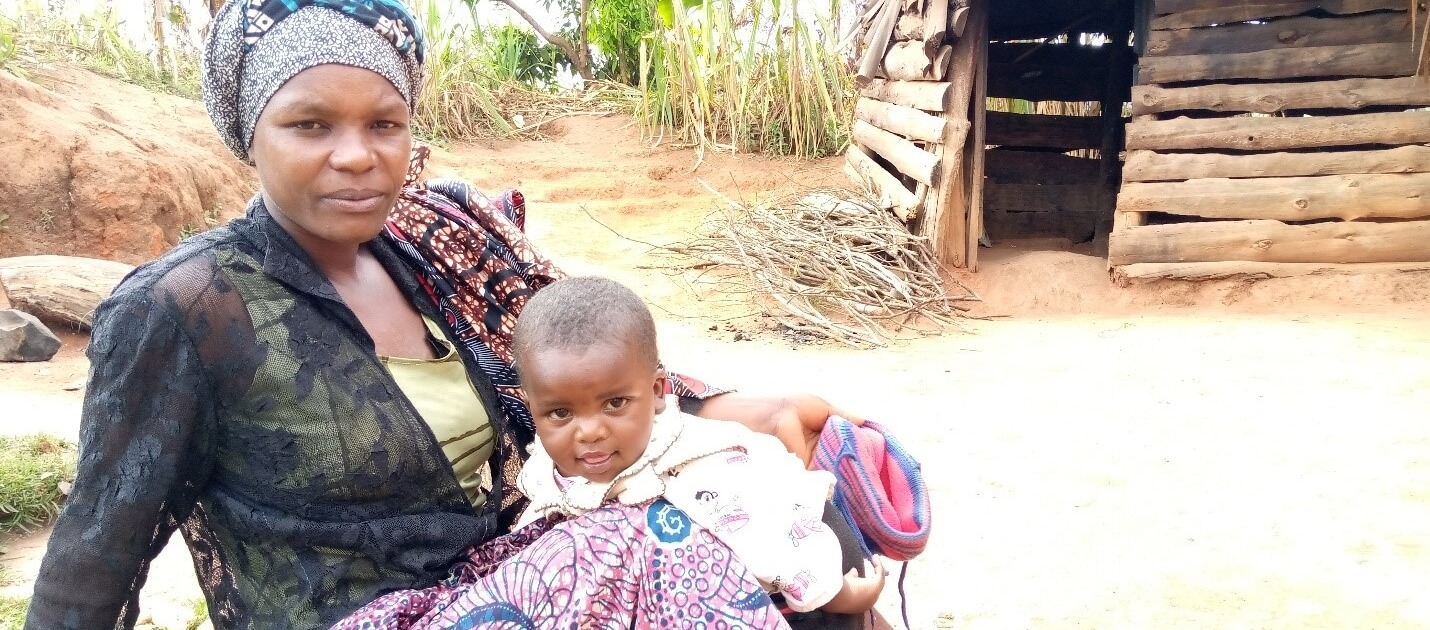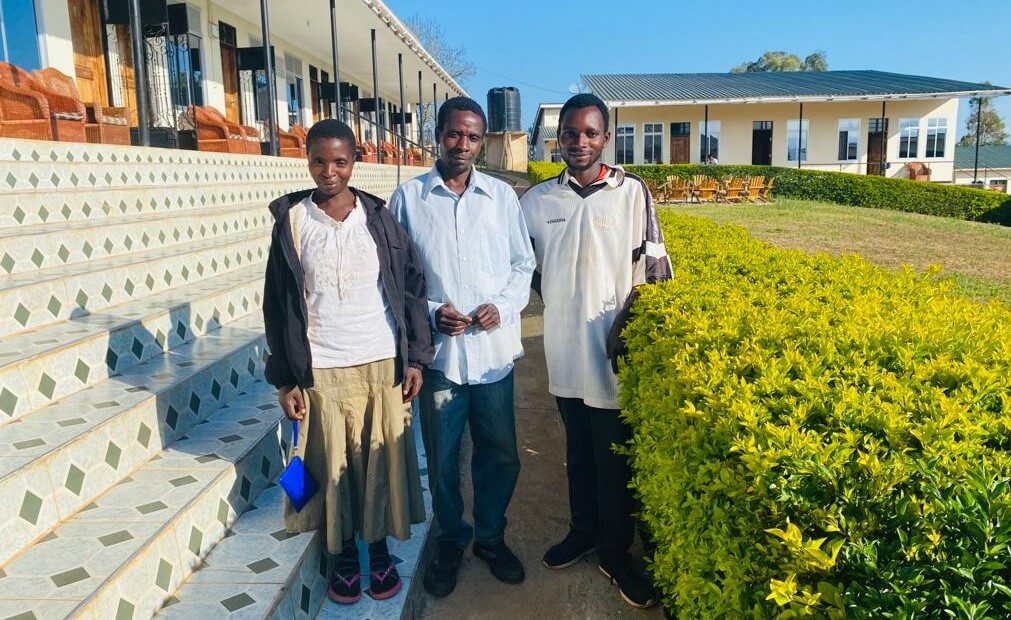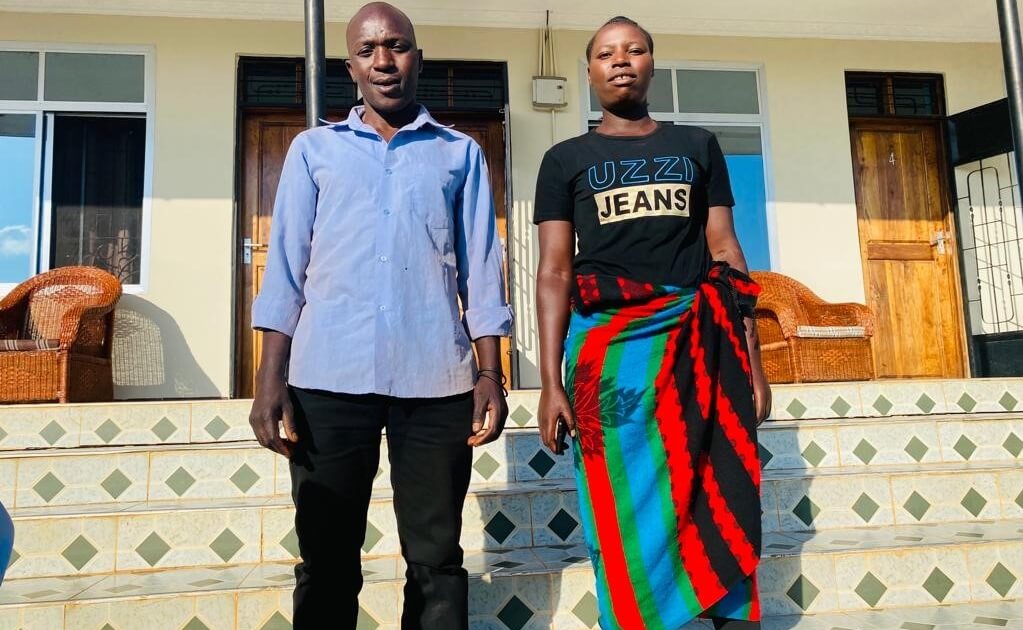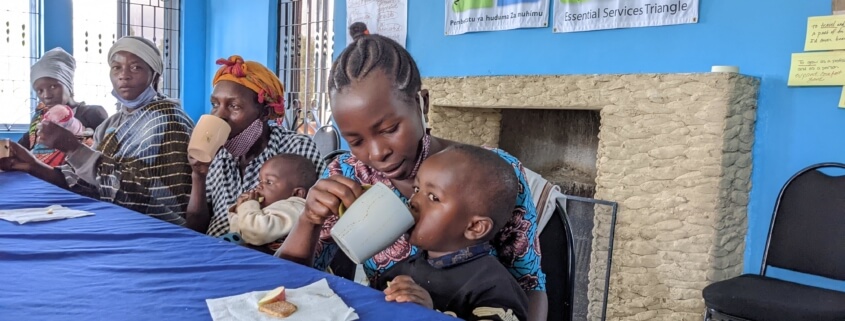Village Families Promote New Dimensions of Mental Wellness in Tanzania
Since 2018, Global Volunteers staff and volunteers have assisted local people in the five villages of the Ukwega Ward of Tanzania in visualizing a model of optimal, community-wide mental wellness to integrate into the primary care system. Beginning in January 2023, a mental wellness assessment will help identify the primary conditions that block that vision. Families in Global Volunteers’ Reaching Children’s Potential Program (RCP) are sharing lived experiences to help form a psycho-education and treatment program for removing barriers to mental wellness individually, and as a community.
Global Volunteers works to provide whole-person healthcare to families enrolled in the Reaching Children’s Potential Program (RCP). Launched in 2017, RCP is a child-focused, parent-driven, family-centered, community-led, comprehensive program that invests in children’s and mothers’ health, nutrition, and education beginning with pregnancy, focusing on the first 1,000 days of life, and continuing through the 18th birthday. Identifying and treating mental health issues, providing community mental wellness education, training parents on stress reduction and self-care, and supporting community mental wellness skills development are the pillars of the RCP Mental Wellness Initiative, launched in 2018.
Families are at the center of the Initiative. In general, services for mental health in the Ukwega Ward of Tanzania, where Global Volunteers works, still face many complex challenges which adversely impact children’s futures. For that reason, in early 2022, Dr. Silas Mosha, Doctor-in-Charge at the Ipalamwa General Clinic (IGC) requested assistance in assessing the mental health needs of RCP families so treatment requirements can be better identified.

The interrelated problems of depression, trauma and substance abuse are assumed to be at the root of emotional and physical suffering in the Ukwega Ward, based upon anecdotal reports from RCP Caregivers. According to the World Health Organization (WHO), in low-resource countries like Tanzania, depression impacts about 16% of women during pregnancy and 20% after childbirth, which often leads to poor nutrition, inadequate care for mother and child, and family stress.
In December 2022, a family foundation granted Global Volunteers funding for a year-long research and education project to work with the community to improve their response to these concerns. Tanzania volunteer Shelley Haddock, PHD, LMFT returned to the Ukwega Ward this month with Colorado State University Research Assistant, Reagan Miller and Global Volunteers Co-founder and Senior Vice President Michele Gran to launch the next phase of the initiative. Shelley, who teaches couple and family therapy in a graduate program at Colorado State University, and has a private practice for individual and couple therapy, designed the needs assessment tool in collaboration with Dr. Mosha, Dr. Petro Lusasi, psychiatrist at Ilula Regional Hospital, and Dr. Yusto Kinyoa, psychologist at Iringa University.
Adhering to established research protocols, the team is conducting the first of two parts of a community mental health needs assessment in January – personal interviews of leaders and parents to understand the community’s general mental health concerns. The second part, which will be conducted by Iringa University psychology students under Dr. Kinyoa’s supervision in March, is a survey of 220 randomly selected mothers from five villages who have given informed consent to be interviewed.
Parents Supporting a Vision of Community Mental Wellness
At the center of the mental wellness needs assessment are RCP parents and other family members who have expressed enthusiastic support for mental health projects in the Ukwega Ward.
The RCP Mental Wellness Initiative serves 841 families, with an average of seven members, living in five villages in the Ukwega Ward for a total of 5,887 individuals. All RCP families access free services at IGC, attend workshops and receive household handwashing stations, container gardens and chicken coops.
Newly formed RCP Parents’ Clubs are central to community-wide acceptance of focus groups and surveys. The self-directed educational/social groups assert that a focus on mental health research and information leads to “improved lifestyles and child rearing.” Parent group member, Semida Kipingi, expanded: “We hope to be good parents in the future, and we support community awareness to the dads and moms for all information and practices that will teach us ways to stay mentally fit.”

In general, community members are curious, but not greatly informed about mental wellness, Parent Group Leader Tumani Nyika says. “First of all, people are not aware of mental health issues. For some of us,” she continues, “when we attend workshops, we understand about stress, depression, alcohol misuse, and its impact, but if we don’t learn, some people take too much alcohol, and some end up with suicide. It’s clear we have to learn better ways to promote mental wellness.”
Increased awareness about mental health, especially for pregnant moms, parents, and young girls and boys is an important next step, the parents suggest. So, they enthusiastically support research to help identify the causes of mental stress and impairment through examination, discussion and research.
Research Insights Form a Responsive Educational Campaign
Concurrently, Global Volunteers’ RCP staff and volunteer professionals present interactive workshops on the most-requested psycho-education topics requested by RCP parents. The group presentations are reinforced through the use of flipcharts in Swahili and English in regularly scheduled caregiver/volunteer home visits.

Families also have requested an expansion of parent groups, and an increase in social support through civic and faith-based structures. Mental health professionals from the Mental Health Association of Tanzania will also conduct capacity building and training for local non-medical RCP staff, including Interpersonal Therapy (IPT) and group Cognitive Behavioral Therapy (CBT), which will enable trained peer support. In this way, access to community resources for mental health interventions will be vastly increased, forming a foundation for a community-based, sustainable mental wellness program.
The community vision for optimal collective mental wellness is, at its core, a fully self-directed and supported initiative, in alignment with the UN Sustainable Development Goals. The RCP Program and Mental Wellness Initiative operate under the direction of local leadership, according to Global Volunteers’ Philosophy of Service.
Volunteers with professional expertise or lived experience in mental health, social work, alcohol and substance abuse, and related practices are needed to conduct workshops, provide counseling and advise RCP Caregivers. Service programs are scheduled year-round with weekly start dates. Contact a volunteer coordinator to join an upcoming volunteer team.




Leave a Reply
Want to join the discussion?Feel free to contribute!